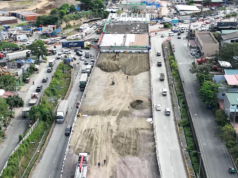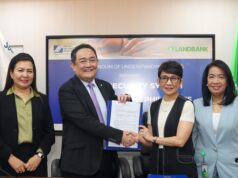Speaking at the anniversary celebration of the Philippine Carabao Center (PCC) here last week, the senator said she will talk with the secretary of the Department of Social Welfare and Development (DSWD) to consider funding a program that would hit two birds with one stone.
The CCT program, better known as the Pantawid Pamilyang Pilipino Program (4Ps), is implemented by the DSWD. It is aimed at eradicating extreme poverty by investing in health and education particularly in ages 0–14.
Cash grants, and even rice subsidy, are given to the beneficiaries totaling 4.4 million. Last fiscal year, the budget allocation for the 4PS was P62.7 billion.
The 4Ps is just an immediate assistance, not a permanent solution to poverty. Its root causes needed to be addressed through land reform, decent work, and sufficient pay.
The 4Ps was patterned on similar programs in other developing countries, like Brazil’s Bolsa Familia, and Mexico’s Oportunidades. “The DSWD has about P78 billion for cash grants to the poorest of the poor. I will suggest adopting the models of other countries wherein the money is spent to buy the produce of the farmers for the feeding programs of school children,” Villar said.
She cited the experience of Thailand in boosting its dairy industry. She said the government initially bought the milk for the feeding program for school children from the dairy farmers. That resulted in the booming of the dairy industry in Thailand, she added.
“If the government bought the produce of farmers for our feeding program, it would be like hitting two birds with one stone – that of boosting the income of farmers and helping the nutritional needs of the children,” Villar said.
She acknowledged, however, that DSWD and PCC, together with other agencies are carrying out a pilot supplementary feeding program for pupils in nursery schools in certain towns in the country for three months. But she said this can be expanded to the different towns or cities in the country to extend bigger benefits.
Under the DSWD-PCC feeding program, the dairy farmers or the members of their immediate families are also trained for entrepreneurial schemes for undertakings that will provide them continuing income.
Villar also took occasion to make a pitch for her dream – that of having farm schools in every town or city in the country. It will be a big boost in providing the necessary knowledge and skills on the technologies for agricultural production and other concerns.
“We have P500 million fund for this. All that is needed is for the accreditation by TESDA (Technical Skills and Development Authority). Each student enrolling in this school will be given free tuition of P12,000 for three months,” Villar said.
She said this farm school can be put up in complementation with farm tourism project which is now encouraged in every town or city under a newly enacted law.
Villar said that by year 2050, according to the United Nations’ Food and Agriculture Organization, the population of the world would be nine billion and that the smallholder and family farms will feed them.
“It is a race against time. We should help the small farmers. They will be the ones to feed our future generation,” Villar said.




